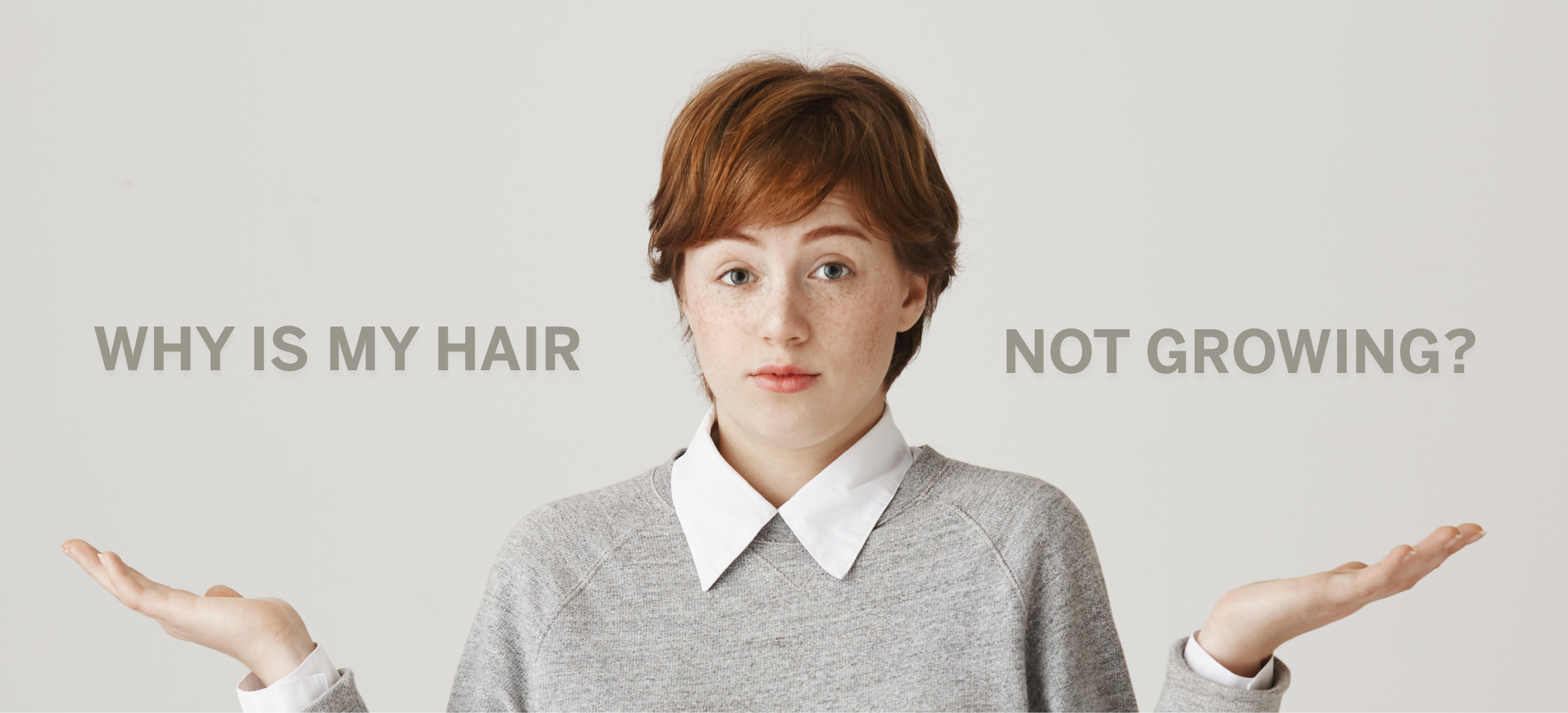Men are willing to do just about anything besides see a doctor. Given a choice, 72 percent of men would rather clean the bathroom, mow the lawn, or do any other household chores. A lot of men aren’t even getting their yearly check-ups. (01) So when it comes to hair loss, not many guys are rush to the dermatologist for a diagnosis and medication. But they should.
The most powerful hair loss weapons against male pattern baldness are only available by prescription. Sure, there’s an endless number of products sold over-the-counter claiming that they work, but the reality is that they aren’t powerful enough to get the job done. This is true for women who have female pattern baldness too.
If your hair is thinning or balding, a DHT blocker may be just what the doctor ordered. Read on to learn more about what DHT is, why DHT is causing your hair loss, and why DHT blockers may be the solution to your hair loss issues.
What is DHT?
Dihydrotestosterone (DHT) is a sex hormone, known as an androgen. Androgens are typically produced in males’ testicles and women’s ovaries. The adrenal glands also produce androgens. DHT is a little different than other androgens, because it is converted from testosterone. Men naturally have more testosterone in their bodies than women, however, an enzyme called 5-alpha reductase (5-AR) converts about ten percent of testosterone in all adults to DHT.
How Does DHT Cause Hair Loss?
When too much testosterone converts into DHT, the excess amounts of DHT interfere with your hair’s growth cycle. The hair follicles miniaturize, make existing hair fall out, and prevent new hair from breaking through.
Will a Blood Test Tell Me If I’m Producing Too Much DHT?
It seems logical that DHT levels can be monitored since testosterone levels can be checked. That’s not the case, though. DHT levels may fall within the normal range on a blood test but still be elevated enough to cause male or female pattern baldness. This is especially true if your body is sensitive to DHT. When testosterone levels increase, DHT has the potential to be an even bigger problem.
Can I Prevent Androgenetic Alopecia?
Unfortunately, there isn’t a way to predict whether or not you’re going to lose your hair. Androgenetic alopecia, male and female pattern baldness, is genetic. If a family member on either your maternal or paternal side has gone bald, there’s a chance that you could too. The only catch is that you don’t have a way of knowing whose or which genes you inherited.
Men on testosterone replacement therapy or get testosterone injections often ask if the medication will contribute to their hair loss. Depending on the patient’s sensitivity, the supplemental testosterone could cause an increase in DHT leading to increased hair loss.
Is Overproduction of DHT Just a Guy Problem?
When people think of androgenetic alopecia, men typically come to mind. Bruce Willis, The Rock, Matthew McConaughey, Jeff Bezos are all prime examples. You don’t see too many bald or balding female celebrities. The reality is that a significant number of women are affected although the number isn’t as high as it is for men. One research study found that out of 954 patients diagnosed with pattern baldness, 23.9 percent were women. (02) Women typically have a lower level of testosterone; however even when lower levels of testosterone convert to DHT, hair loss can occur.
What Can You Do to Reduce the DHT Levels in your Body?
The most effective way to reduce your DHT level is to use a DHT blocker. If you’ve been dealing with hair loss issues for a while, you’re probably well aware of the overwhelming number of over-the-counter (OTC) hair loss options. It’s not unusual for patients to spend a lot of time and money with these products before giving up and turning to their dermatologists for prescription options.
Prescription DHT blocking medications reduce the amount of 5a-reductase enzyme, which converts testosterone into DHT in your body. Here are the DHT blockers most commonly prescribed by dermatologists and hair specialists:
Oral & Topical Finasteride
Finasteride is one of the most well-known DHT blockers. The medication was FDA approved in 1992 under the name Proscar to treat enlarged prostates and five years later under the name Propecia to treat androgenetic alopecia. Although both men and women can use Finasteride, it is not recommended for use in women who are or could become pregnant.
Oral Finasteride is highly effective as a hair loss treatment. One research study found that 80 percent of participants who took Finasteride saw an increase in hair growth. (03) However, some people who take oral Finasteride report undesirable sexual side effects, including decreased libido. A good solution is using topical Finasteride rather than oral. Topical Finasteride has been proven to be as effective as oral without the side effects in many studies. (04)
Topical Finasteride Combined With Minoxidil
Minoxidil is not a DHT blocker, but it has an important role in hair growth for people with male and female pattern baldness. Minoxidil is what’s called a vasodilator. It enlarges the blood vessels so more oxygen reaches the scalp. As a result, it makes the hair follicles bigger so new hair can emerge. Minodixil and Finasteride are a dynamic duo when used together to fight hair loss. The Finasteride prevents the testosterone from converting into DHT while the Minoxidil ensures that your scalp is conducive to new hair growth. A research study conducted in 2020 found that the combination of Finasteride and Monoxidil was safe and more effective than monotherapy. (05)
Dutasteride
Dutasteride, also known as Avodart, is another DHT blocker originally developed to treat enlarged prostates. It is also a 5-alpha reductase inhibitor. Although Finasteride and Dutasteride work similarly, the medications have some differences. Whereas Finasteride is FDA-approved to use for hair loss, Dutasteride can only be used off-label. It has not yet been FDA-approved. Finasteride is usually highly effective in treating androgenetic alopecia and is typically used as a first-line medication. In cases where patients need an extra boost, Dutasteride can be helpful. Research has shown that men who used Dutasteride for 24 weeks had thicker hair than men who used Finasteride. (06)
Spironolactone
Spironolactone is FDA approved to treat high blood pressure, heart failure, and fluid retention due to kidney and liver diseases. It is not FDA-approved to use for hair loss and is used off-label for women. Spironolactone typically isn’t prescribed to men because it can cause feminizing side effects. Like Finasteride and Dutasteride, Spironolactone slows down androgen production. The medication has been found to be both safe and effective. (07)
How Do DHT Blockers Work?
Now that you have a better idea of what DHT blockers are available, the next question that needs to be answered is how do they work? The mechanics behind the prescription medications approved or used as DHT blockers are similar. First, preventing testosterone from converting to DHT inhibits the miniaturization of the hair follicles. Secondly, when the levels of scalp DHT are lowered, the number of hairs in the anagen phase are maintained or increased. Think of anagen as the active phase of the hair growth cycle. This is when the cells in the roots of your hair divide rapidly and form new hair. Elongating the anagen stage gives your hair more time to grow.
Get More Information On Prescription DHT Blockers
If you’re experiencing androgenetic alopecia and want more information on DHT blockers, contact us. If, like many, you haven’t yet been to a dermatologist, free phone consultations are available with board-certified dermatologists and hair specialists.
Formulas are available for men and women and can even be customized based on your specific needs. We are happy to remove or add ingredients as needed and appropriate. You can also see before and after photos of our patients. You can get an idea of what you can realistically expect to see after using Happy Head hair loss solutions that block the DHT causing your alopecia.








.png)


